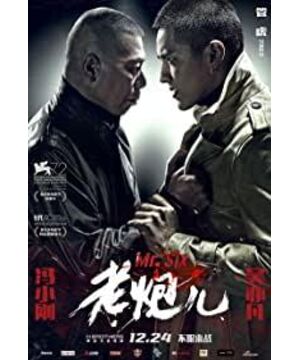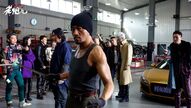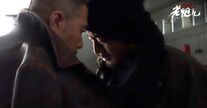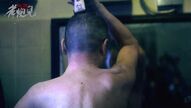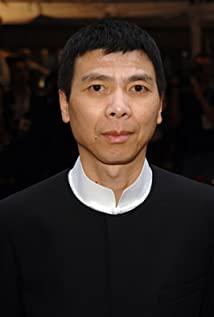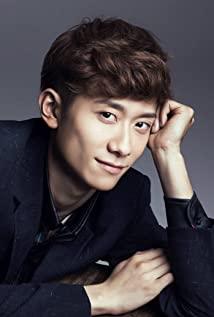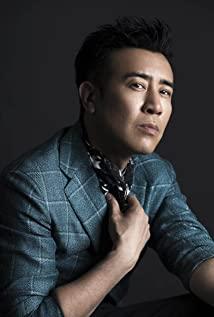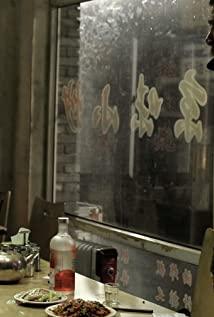. According to Guo'er played by Xu Qing in the photo, "a saber was able to carry more than a dozen people back then", which was "really awesome" rather than "bragging". But it's been 15 years since the 21st century. Lao Pao'er encountered new problems, his son had a dispute with the second generation of officials, and Lao Liu decided to come out again and solve the problem according to the rules of the year.
I omit the details of the plot, but in short, the old Paoer, who only knows about funny birds, snarls, bullshit, and meddlers, suddenly finds that the way he used to be in the market is not effective. Facing the second generation of officials, Lao Liu realized that "I'm just an ordinary person".
The framework of the drama of "Old Pao'er" is basically such an antagonistic relationship. Everyone has read a lot of social news about the second generation of officials, and they all know from the bottom of their hearts that this kind of resistance basically does not exist in real life, and there is no chance of winning. So the drama is still slightly higher than reality.
These preconditions set a basic tone for "Old Pao'er". This is not a film that relies on stories to win. "Old Pao'er" uses stories as its shell this time, and just wants to talk to everyone about some basic principles of being a human being.
So, friends who came to read the story, go out and turn left.
2. It is not the obsession of the old Beijing, but the spirit of the older generation.
The background of the story of "Lao Pao'er" is rooted in Beijing. From the words of Lao Liu's mouthful of dialects, you can feel the obvious regionality. But to limit "Old Pao'er" in this way is a bit narrow.
There is a very important detail line in the film. Lao Liu committed a crime in 1994 and spent time in prison. After he came out, he has been living in poverty, and he relied on a house for his pension. This passing line revealed a practical information. It is the group of people who were eliminated during the reform and opening up period.
This is obviously a social change that everyone, especially the 1980s, has deeply experienced. The reform and opening up in the 1990s had a profound impact on the current social status quo. First, it is the first wave of divorce since the founding of the People’s Republic of China, and the proportion of single parents and remarriage families in the 1980s is extremely high; second, the first generation of rich second generation was born; third, it is the spiritual and cultural divide between the parents and the younger generation. And these three points are reflected in the film.
Although the setting of Lao Liu in "Lao Pao'er" has geographical restrictions, the personal experience of Lao Liu itself is still a benchmark that can be used throughout China. Therefore, in the dramatic tearing, the sixth is not alone, nor is the rich second generation played by Wu Yifan. This is equivalent to a confrontation between two generations. And this kind of confrontation does not distinguish between rich and poor, and the contradiction between Lao Liu and the son played by Li Yifeng also stems from the barriers of intergenerational communication.
The film takes the trouble to explain the various estrangements between the two generations when they communicate. For example, when juniors respect elders, the wine glass should be lower than the other party, and for a series of requests such as asking for directions and asking for help, honorifics should be used. This idea of "I teach you young people how to be human" runs through the film throughout.
This is particularly similar to the head-to-head confrontation between "Old Money" represented by Jiang Wen and "New Money" represented by the article in "One Step Away".
3. At the same time, it only shows the "straight men's spirit" without "cancer". In
recent years, it seems that there are more criticisms of domestic male directors for the tendency of "straight men to cancer" in films. Han Han and Ning Hao have been shot. But in "Old Pao'er", the super straight boy group like Guan Hu and Feng Xiaogang got it just right and didn't leave anyone a talk.
In view of the overall choice of relatively weakened plot as mentioned before, "Old Pao'er" is relatively conservative in terms of emotional catharsis. There is no such hot-blooded love drama, all male dramas are handled based on the needs of the plot.
But how could Guan Hu only make a sketch! "Old Pao'er" did not delay the needle on the current evils of society. Among them, there are regrets for the younger generation "hate iron is not steel", and there are also ridicules for the increasingly indifferent public morality of the public. In short, there are many.
On a high-level level, the emotions expressed in the film can be understood and sighed by ordinary people like me. For example, the most basic "brotherhood", or "bare feet are not afraid to wear shoes" style of primitive resistance to authority.
What is quite surprising is that in addition to the main points of the main line of the film, the film also takes into account many sub-plots. For example, the love between father and son, the tacit love between Xu Qing and Feng Xiaogang, and so on. One of the brightest details of the film is the shot of the captive ostrich running wildly along the road. This surreal picture is really an unmissable ignition point!
View more about Mr. Six reviews


